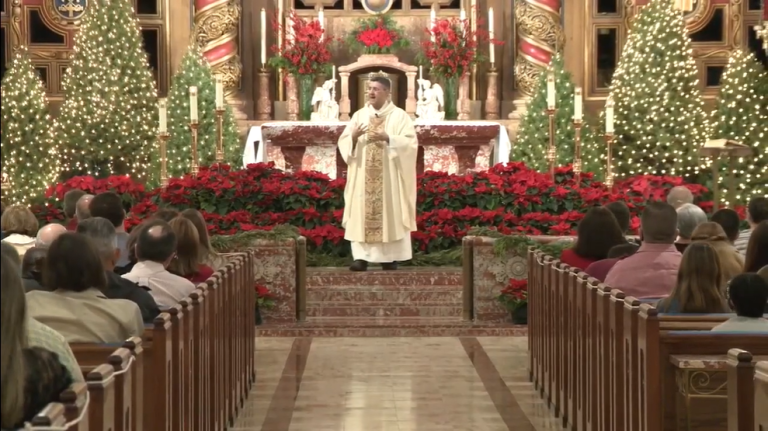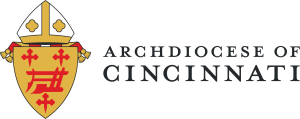In his Introduction to the Devout Life, St. Francis de Sales writes that genuine, living devotion exists when a person not only does good, but does it carefully, frequently, and promptly. This kind of instinctive, loving action is also called “docility of the spirit.” As Scripture reveals, an excellent role model of this docility is St. Joseph.
The Holy Family of Jesus, Mary, and Joseph was in peril from the start. That the inn was full was only one of their many troubles. But, despite the obstacles that the Holy Family had to overcome, they prevailed. This is due in large part to Joseph, the earthly father of Jesus. Any time there was confusion or danger that threatened the Holy Family, God needed only to speak to Joseph in a dream and Joseph would immediately do whatever was necessary to care for and protect his family.
The Birth of Jesus
The Holy Family threatened to unravel before it was even fully created! Mary was found to be pregnant while she and Joseph were betrothed, but before Joseph brought her into his home to consummate the marriage. Mary’s pregnancy could have caused tremendous scandal in the community and the shaming of Mary, but “Joseph, being a just man and unwilling to put her to shame, resolved to send her away quietly” (Mt 1:19) – a noble gesture, and from Joseph’s point-of-view, the only thing he could have done. But, God had something else in mind:
“As [Joseph] considered this, behold, an angel of the Lord appeared to him in a dream, saying, ‘Joseph, son of David, do not fear to take Mary your wife, for that which his conceived in her is of the Holy Spirit; she will bear a son, and you shall call his name Jesus, for he will save his people from their sins’” (Mt 1:20-21)
What did Joseph do? Did he question the dream? Did he wonder if it was really a message from God? Did he put off making a decision, or choose contrary to what he heard in the dream? No. “When Joseph woke from sleep, he did as the angel of the Lord commanded him” (Mt 1:24).
The Escape to Egypt
The wise men who followed the star to the Holy Family’s house were supposed to return to Herod and report to him where they had found the child. But they didn’t! They too had great docility of spirit and, heeding the warning they received in a dream, decided to depart to their own country by another way (Mt 2:12).
Then Herod, when he saw that he had been tricked by the Wise Men, “was in furious rage, and he sent and killed all the male children in Bethlehem and in all that region who were two years old or under, according to that time which he had ascertained from the Wise Men.” (Mt 2:16)
But, God again intervened, and Joseph responded:
“[B]ehold, an angel of the Lord appeared to Joseph in a dream and said, ‘Rise, take the child and his mother, and flee to Egypt, and remain there till I tell you; for Herod is about to search for the child, to destroy him.’ And he rose and took the child and his mother by night, and departed to Egypt, and remained there until the death of Herod” (Mt 2:13-15).
Joseph didn’t wait to make preparations and plans. He didn’t even ask where in Egypt he was to go or how he was going to get there. He rose that very night, gathered up his precious family, and left. It’s alarming to the modern mind to see how singularly focused he was on being obedient to the promptings of God. Nothing else mattered in comparison to that.
The Return from Egypt
After the death of Herod, we see that God told Joseph in a dream that it was safe to return to Israel, and then, on the way there, God told him in another dream exactly where he should settle.
“[W]hen Herod died, behold, an angel of the Lord appeared in a dream to Joseph in Egypt, saying, ‘Rise, take the child and his mother, and go to the land of Israel, for those who sought the child’s life are dead.’ And he rose and took the child and his mother, and went to the land of Israel. But when he heard that Archela′us reigned over Judea in place of his father Herod, he was afraid to go there, and being warned in a dream he withdrew to the district of Galilee. And he went and dwelt in a city called Nazareth, that what was spoken by the prophets might be fulfilled, ‘He shall be called a Nazarene’” (Mt 2:19-23)
It’s interesting that, for this particular mission, God appeared to Joseph twice. Perhaps God did this because Joseph had proven himself keen to respond carefully, frequently, and promptly to the Lord.
Follow and Know
Joseph’s life is an example to us that if we readily respond to the guidance and promptings of God’s grace, then we will receive more guidance and more promptings from Him. In other words, in order to know the Will of God, we have to follow the Will of God! It’s radically counter-intuitive, but that is the message of the life of St. Joseph.
Just imagine how many mistakes we could avoid and good fruit we could produce as missionary disciples if only we had St. Joseph’s docility! When we come to a place of uncertainty and we’re unsure what God’s Will is, we tend towards stagnation. We tend to think, “I must stop and do nothing until I know what His Will is.” But, that’s not what St. Joseph did. Instead, he kept going, kept following, kept responding, kept doing what he knew was right. He stayed open and faithful, and as a result, God’s Will was further and further revealed in his life.
St. Joseph reminds us: Stay docile and witness God’s plan unfolding!
Nicholas Hardesty




